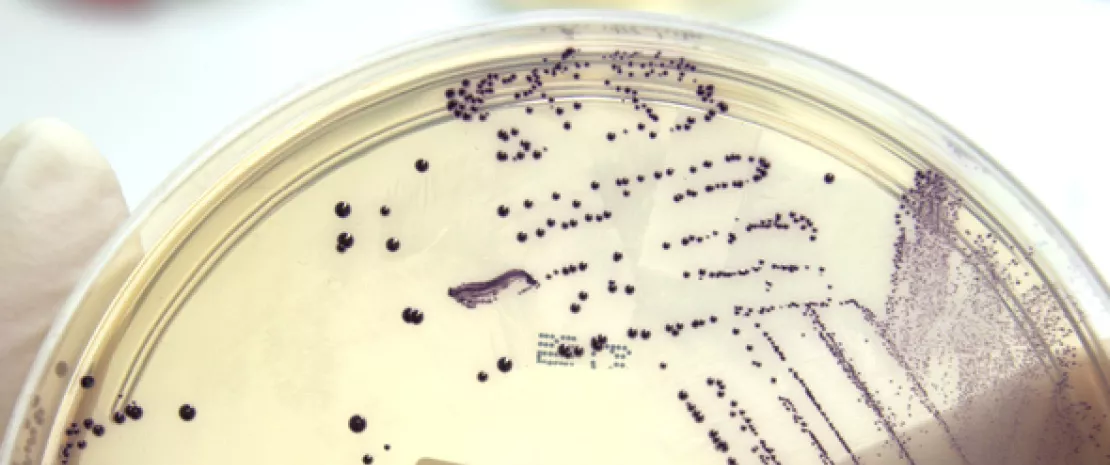Lantibiotics: a new avenue in the fight against resistant bacteria
Colonization of the gastrointestinal tract by a strain of vancomycin-resistant Enterococcus faecium could largely be reduced by the administration of bacteria that naturally synthesize an effective and selective lantibiotic.
Lay public section
Find here your dedicated section
Sources
This article is based on scientific information

About this article
How can we fight against the transmission of pathogens highly resistant to antibiotics such as vancomycin-resistant Enterococcus faecium (VRE)in healthcare facilities? A promising approach is based on the reinforcement of the gut resistance to colonization through the administration of protective gut bacteria. In mice, bacterial transplant seems to restore the resistance to colonization and reduce the gut density of VRE. This was achieved via the combination called “CBBPSCSK” of 4 bacterial strains, including Blautia producta (BPSCSK; where SCSK designates the Blautia strain). However, the underlying mechanisms at play still had to be elucidated. This was partially accomplished by the works recently published in Nature by American researchers.
A lantibiotic similar to E234 preservative
Based on experimental results, BPSCSK could help reduce the growth of VRE by secreting a (sidenote: Lantibiotic Low molecular weight bacterial peptide with antimicrobial activity produced by a large number of Gram-positive bacteria ) , similar to nisin A, which is produced by Lactococcus lactis and largely used in the food industry as preservative (E234). Similar...but way more effective and selective.
More effective and selective in vivo
Although VRE growth is inhibited both by BPSCSK and L. lactis in vitro, things are very different in vivo: only BPSCSK is detected in the colon (where it represents about 25% of bacteria present 5 days after the administration of CBBPSCSK); it reduces the density of VRE and inhibits Gram+ pathogens while preserving other gut commensal bacteria. On the contrary, L. lactis is not able to colonize the gastrointestinal tract and has a wider spectrum of action, at the expense of some beneficial bacteria.
A potential probiotic agent
The results also emphasize that genes encoding for the synthesis of lantibiotics are naturally present in human microbiomes from healthy individuals; and that lantibiotic-producing species inhibit VRE. Moreover, in 22 patients with a high risk of contracting VRE infection (because they were undergoing a hematopoietic cell transplant), a high abundance of lantibiotic-coding genes was associated to a reduced density of E. faecium. Similarly, in germ-free mice transplanted with fecal preparations from these patients, the resistance to colonization by VRE is correlated to the abundance of the lantibiotic gene. This supports the idea that lantibiotic-producing gut bacteria reduce the colonization by VRE and are potential probiotic agents that could restore resistance towards this pathogen.





